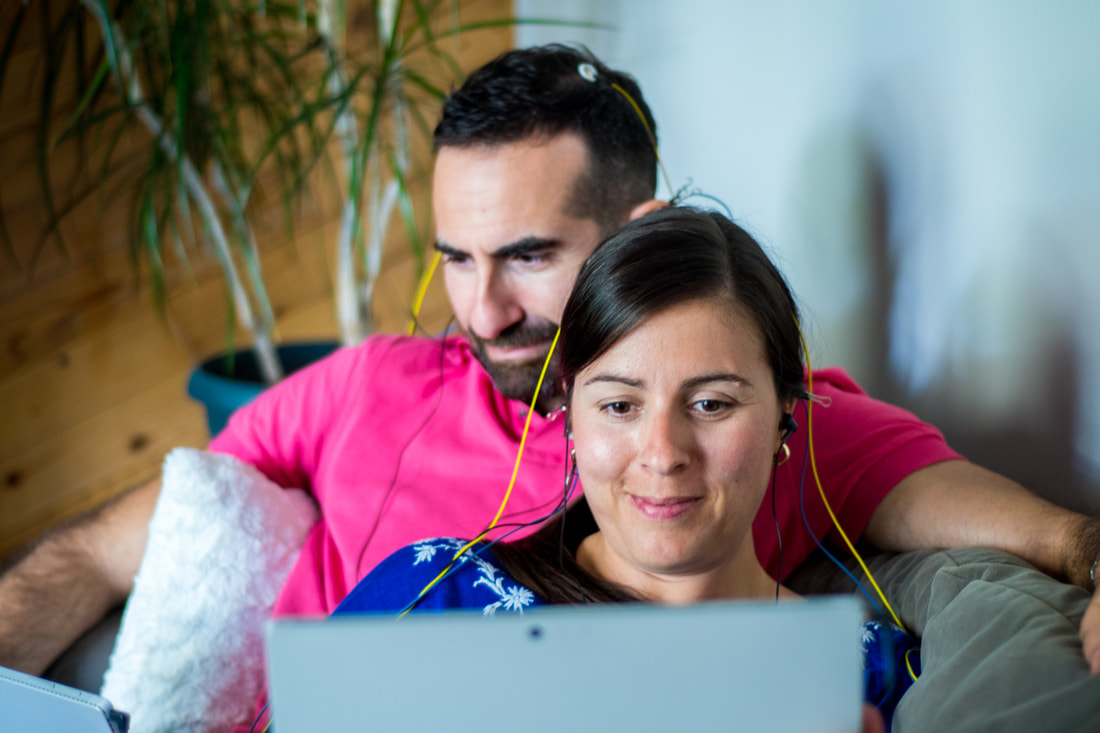COVID-Insomnia Treatment Options: CBTi & Brainwave-Training Show Promise

The COVID-19 pandemic has not only posed significant health challenges but has also brought to light various long-term health issues that can arise even after recovering from the acute phase of the illness. One such issue is the onset of COVID and insomnia, a sleep disorder characterized by difficulty falling asleep or staying asleep, or waking up too early and not being able to go back to sleep. While insomnia is a persistent problem for Americans, its prevalence have increased in individuals who have had even mild-to-moderate COVID-19.
Prevalence of Insomnia After COVID-19
Research indicates that a substantial number of individuals experience sleep disturbances after a COVID-19 infection. A study published from the Cleveland Clinic found that out of 1,011 participants who had recovered from COVID-19, 26.2% reported experiencing insomnia symptoms. Another study published in The Lancet Psychiatry reported that 1 in 3 individuals experienced significant insomnia eight months or longer after recovering from COVID-19.
Possible Causes of Insomnia Post-COVID-19: Several factors may contribute to the development of insomnia following a COVID-19 infection:
1. Psychological Impact: The stress, anxiety, and associated with contracting a serious illness like COVID-19 can lead to insomnia. The fear of the illness, uncertainty about the future, and the emotional toll of the experience can disrupt sleep patterns. This residual anxiety can linger well after the pandemic subsided, but can create lasting symptoms of mild-to-moderate and even severe trauma based hyper-vigilance; a direct contribute to COVID related insomnia.
2. Physical Symptoms: COVID-19 can cause physical symptoms such as coughing, shortness of breath, and body aches, which can make it difficult to sleep. Even after recovering from the acute phase of the illness, lingering physical symptoms can continue to disrupt sleep.
3. Brain Based Bio-Electrical Instabilities:
Researchers found that COVID-19 may have altered the brains ability regulate its own EEG, thus possibly contributing to chronic insomnia.
4. Inflammatory Response: COVID-19 triggers an inflammatory response in the body and brain, and this inflammation has been linked to sleep disturbances. The ongoing inflammatory process, even after recovery could also contribute to severe insomnia.
5. Medication Side Effects: Some medications used to treat COVID-19 or its symptoms can have side effects that affect sleep. For example, corticosteroids, which are sometimes used to reduce inflammation in severe cases of COVID-19, can often cause, and continue to cause insomnia in the long-term.
Potential Treatments: Individual and Combined
Treatment options may include:
• Cognitive Behavioral Therapy for Insomnia (CBT-I): CBT-I focuses on changing behaviors and thoughts that may contribute to long-term sleep problems.
• Supplements to Reduce Over-All Inflammation: Garlic, and magnesium supplements, and fresh ginger have shown improvements in inflammation reduction, but also strengthening an immune system already compromised by insomnia-induced chronic exhaustion.
• Brainwave Biofeedback + Personalized Sleep Coaching: Although few and far between, several clinics and tele-health practices utilize these two combined interventions.
• CBTi + Brainwave Training: These two approaches combined address both the psychological and bio-electrical (brainwave) factors most commonly found in adults, college students and teens who are suffering from insomnia after COVID.
Conclusion
Insomnia can be a challenging and persistent issue for individuals recovering from COVID-19. Understanding the possible causes of insomnia post-COVID-19 and implementing appropriate treatment strategies can help improve sleep quality and overall well-being in these individuals. Ongoing research is essential to further understand the relationship between COVID-19 and insomnia and to develop effective interventions for those struggling.
